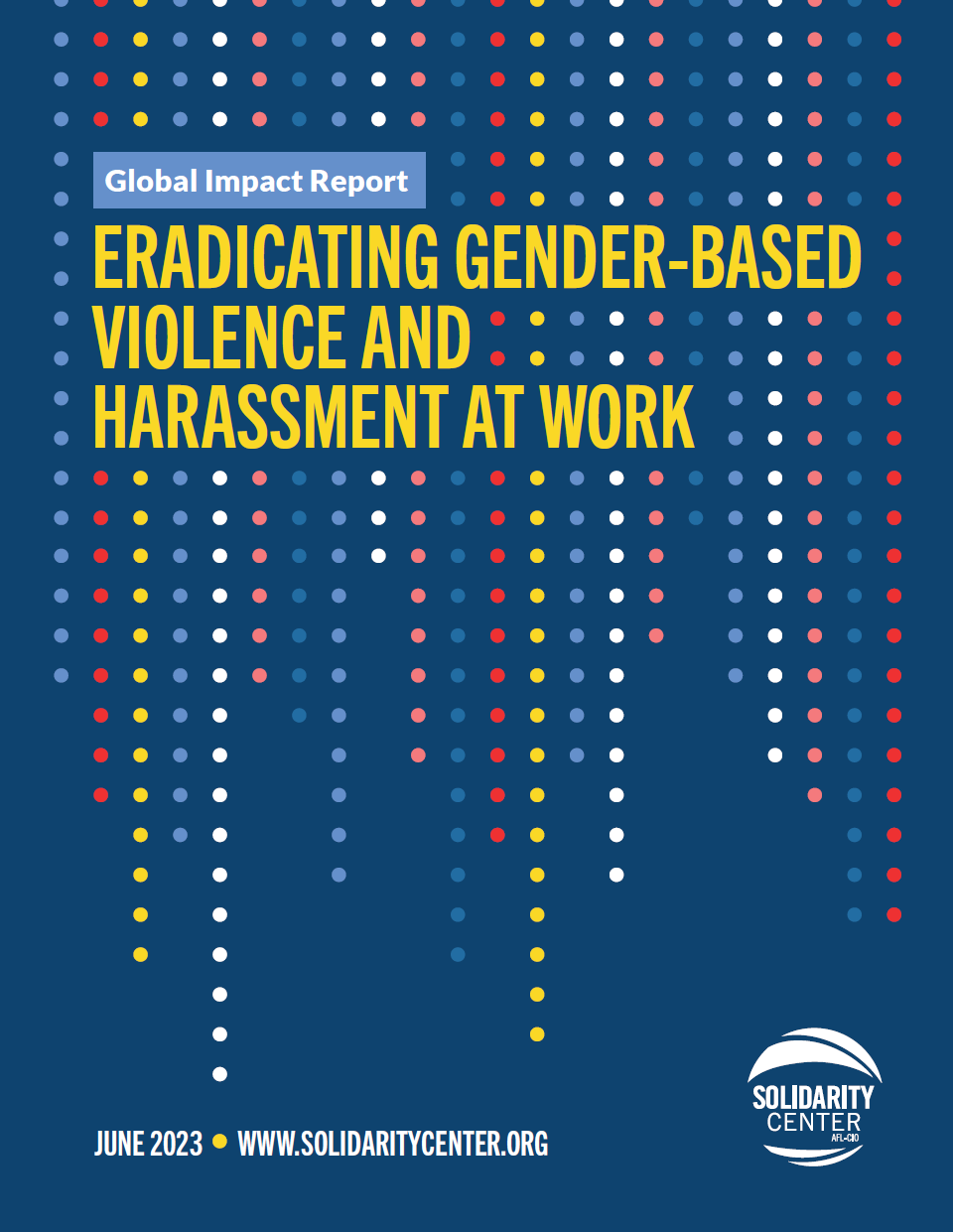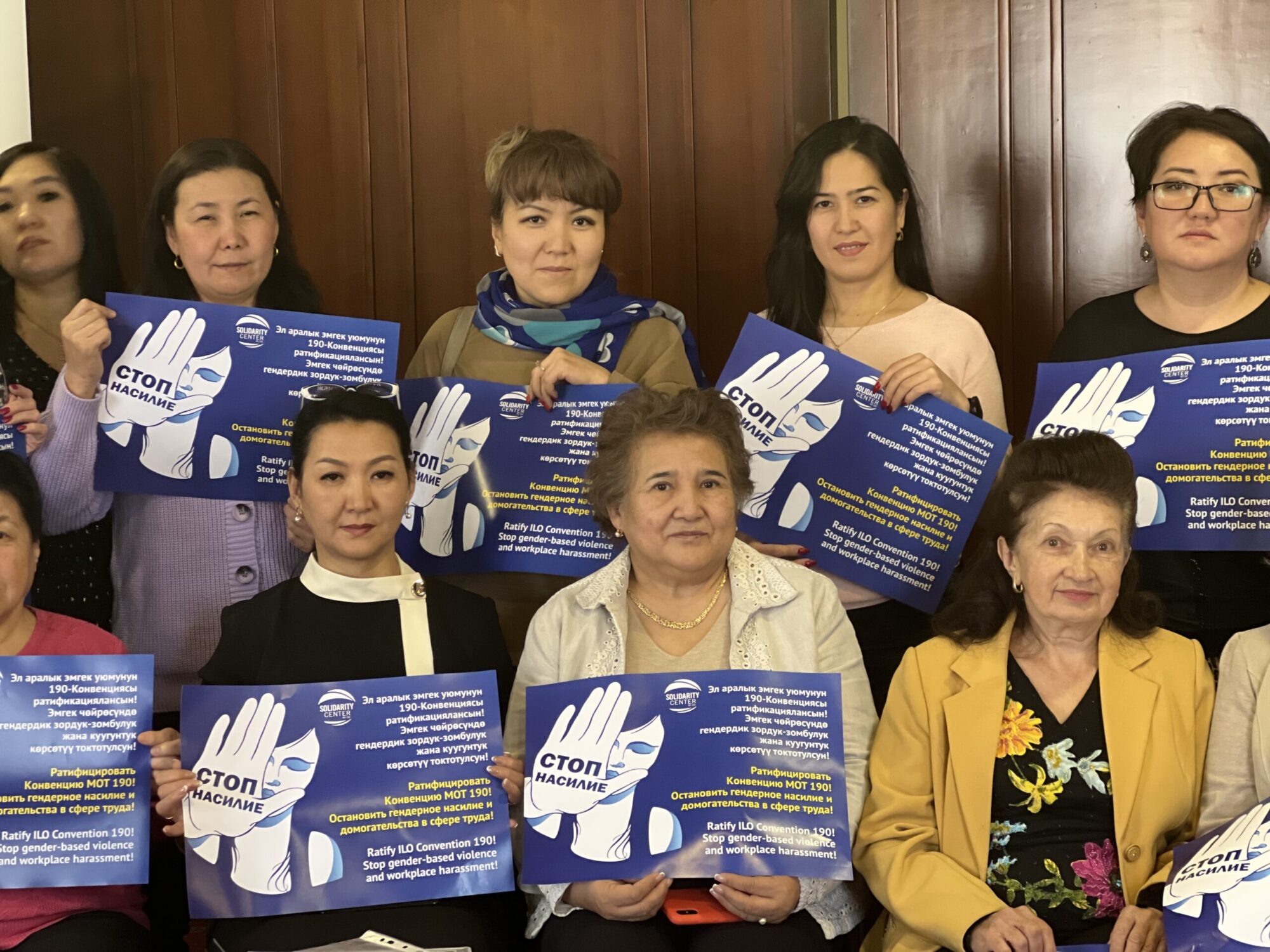The Solidarity Center Global Impact report highlights the Solidarity Center's support of unions and civil society organizations in ending gender-based violence (GBVH) at work and showcases key outcomes, including a landmark agreement to address GBVH in Lesotho garment...
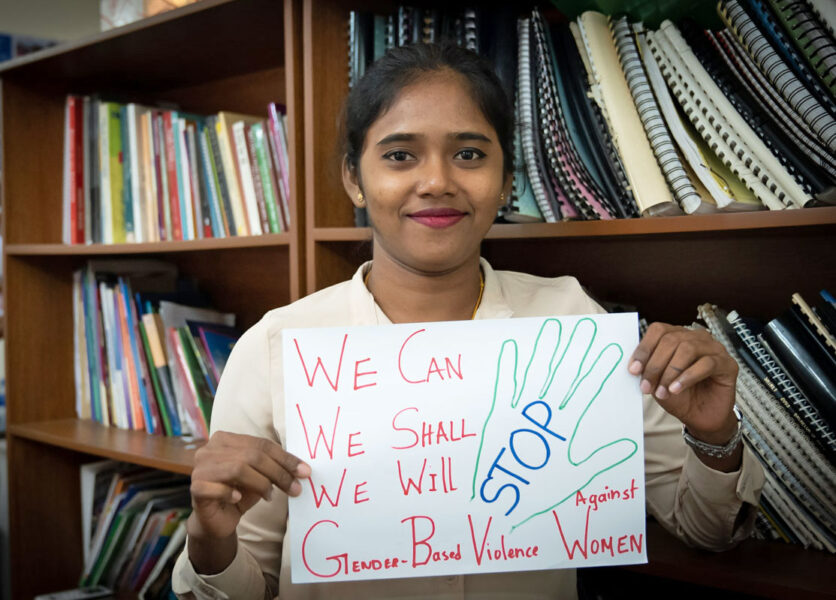
The Solidarity Center and worker rights organizations like the Lanka Eksath Jathika Workers Union in Sri Lanka advocated for a landmark global standard to eliminate gender-based violence and harassment at work and are pushing for its ratification by governments. Credit: Solidarity Center/Sean Stephen
The Solidarity Center prioritizes preventing and addressing gender-based violence and harassment in the world of work, recognizing it is a primary barrier to achieving gender equality and a key step for security of all workers’ rights. The Solidarity Center seeks to enhance the voice of women and other marginalized workers in policy making at the local, national, and international levels to reduce the risk of gender-based violence at work and build leadership, voice and direct participation of women and other marginalized workers and their unions.
Beginning in 2014, the Solidarity Center was a core member of a global coalition of worker rights organizations led by women union activists that successfully advocated for a landmark global standard (Convention 190) to eliminate violence and harassment in the world of work, including gender-based violence and harassment which was adopted by the International Labor Organization in June 2019. We support our partners as they campaign for their governments to ratify ILO Convention 190.
See related factsheets, videos and reports.
Nigerian Activists Mobilize to End Gender-Based Violence at Work

/
Kyrgyzstan: Women Workers Winning Protection Against Gender Violence
To address obstacles preventing elimination of gender-based violence and harassment (GBVH) in the world of work, union women and their allies marked International Women’s Day with a public event advocating for ratification of UN International Labor Organization...
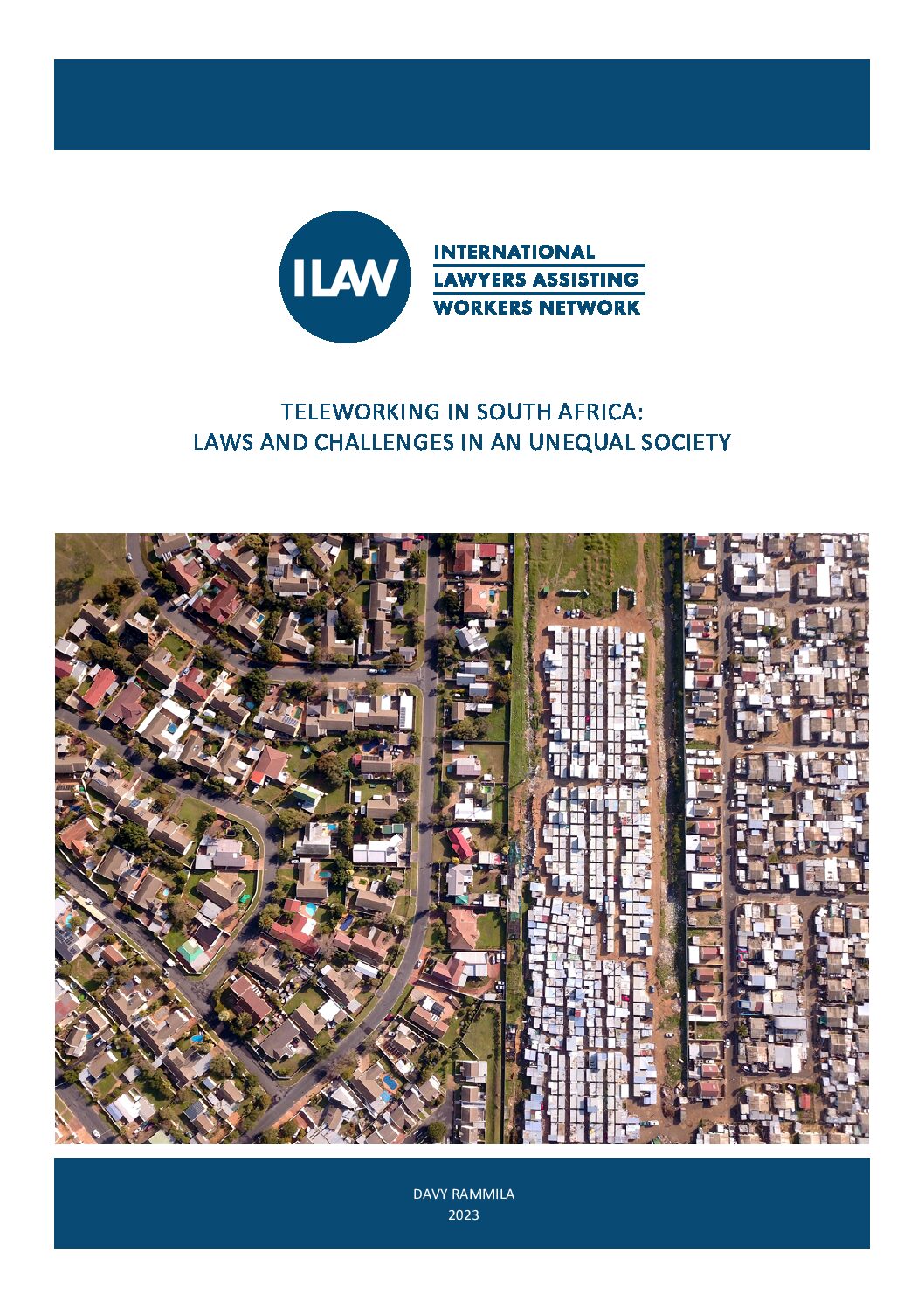
TELEWORKING IN SOUTH AFRICA: LAWS AND CHALLENGES IN AN UNEQUAL SOCIETY
The ILAW Network is pleased to release reports on the regulation of telework in Mauritius and South Africa. The reports examine the impact of telework on a range of worker rights topics, including the regulation of atypical work, access to health and safety measures,...
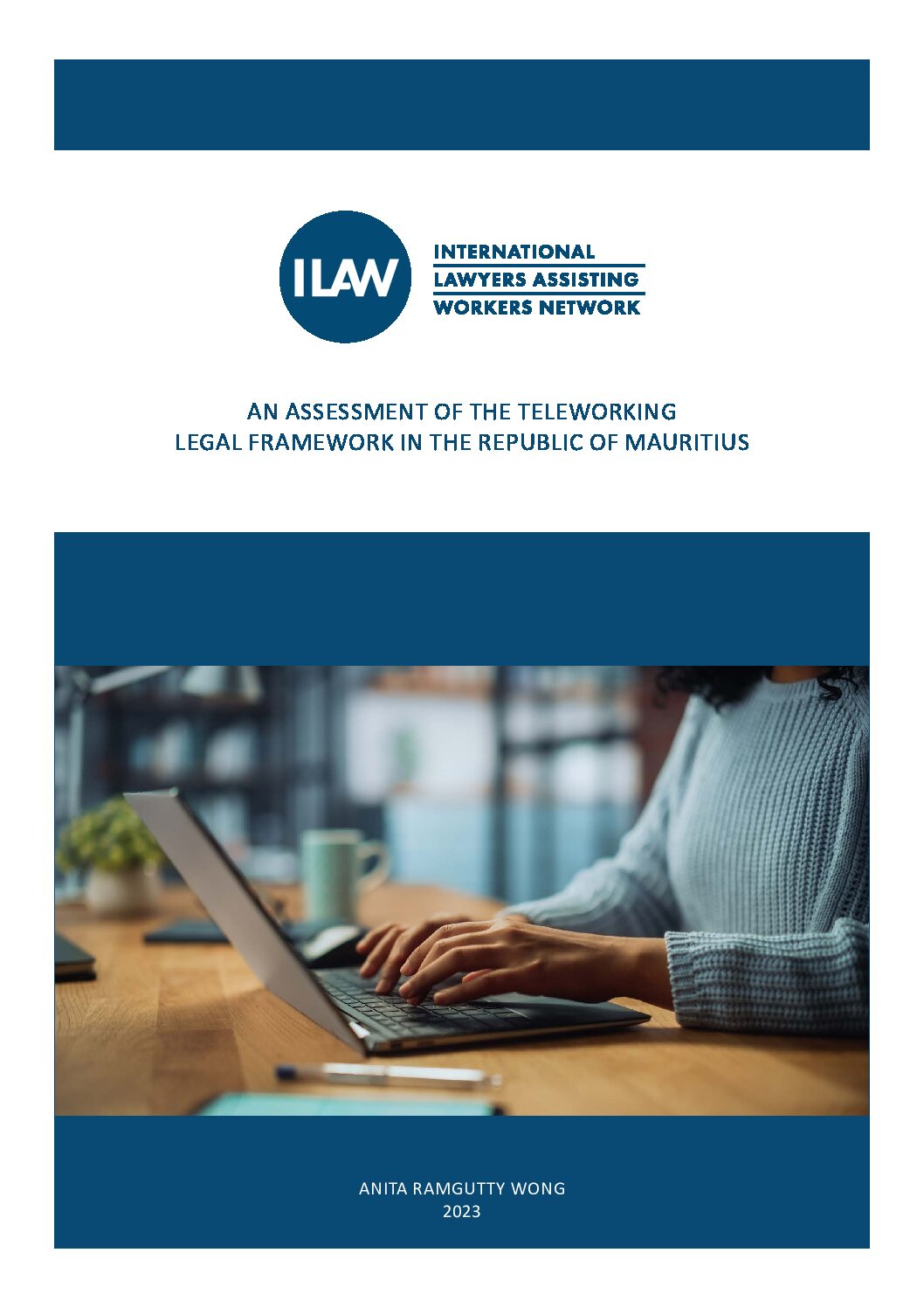
AN ASSESSMENT OF THE TELEWORKING LEGAL FRAMEWORK IN THE REPUBLIC OF MAURITIUS
The ILAW Network is pleased to release reports on the regulation of telework in Mauritius and South Africa. The reports examine the impact of telework on a range of worker rights topics, including the regulation of atypical work, access to health and safety measures,...
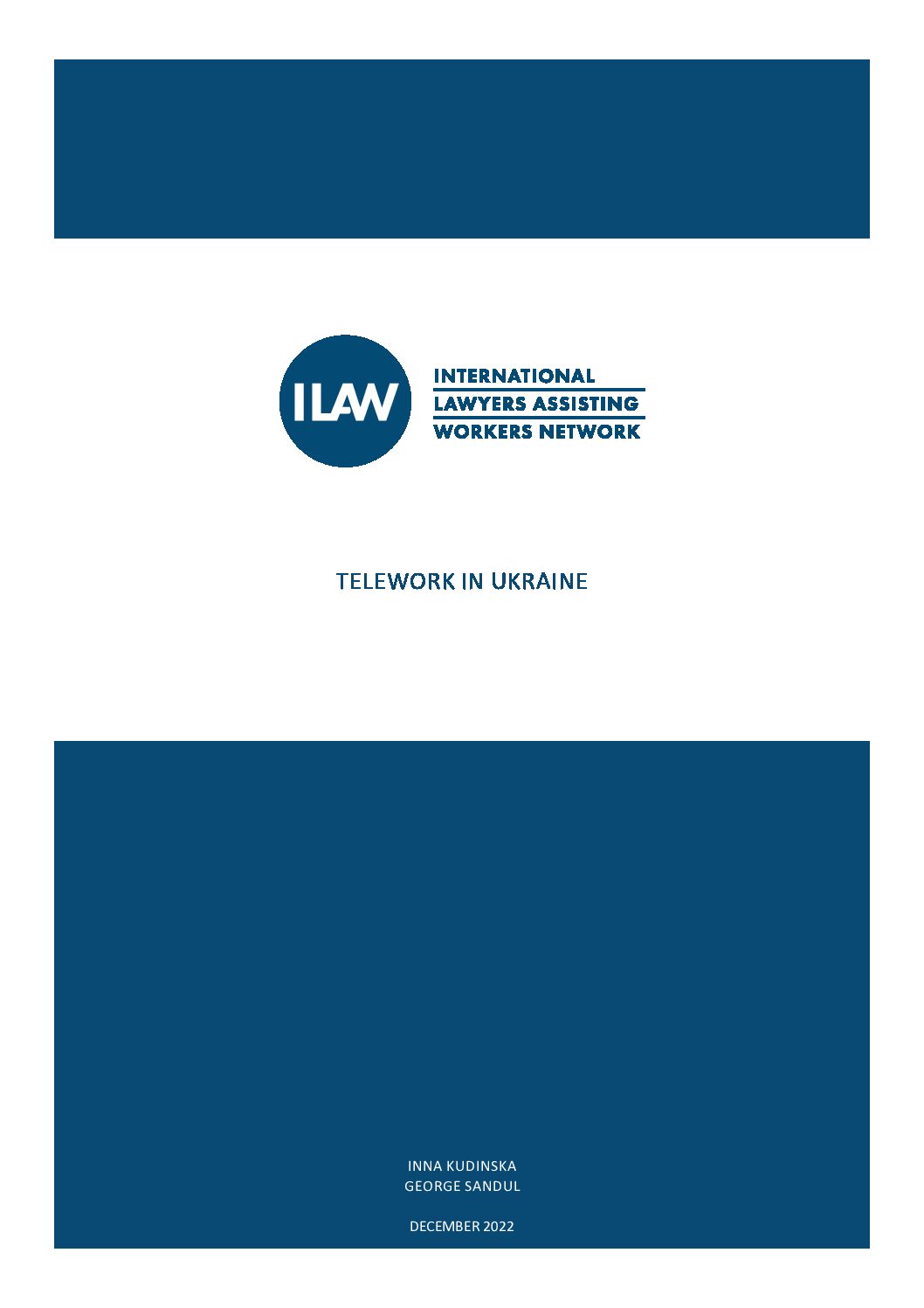
TELEWORK IN UKRAINE
The ILAW Network has undertaken a research series on telework in Europe and Central Asia. National reports examining the regulation of telework in Moldova, Poland, and Ukraine examine the impact of telework on a range of worker rights issues, including work hours and...
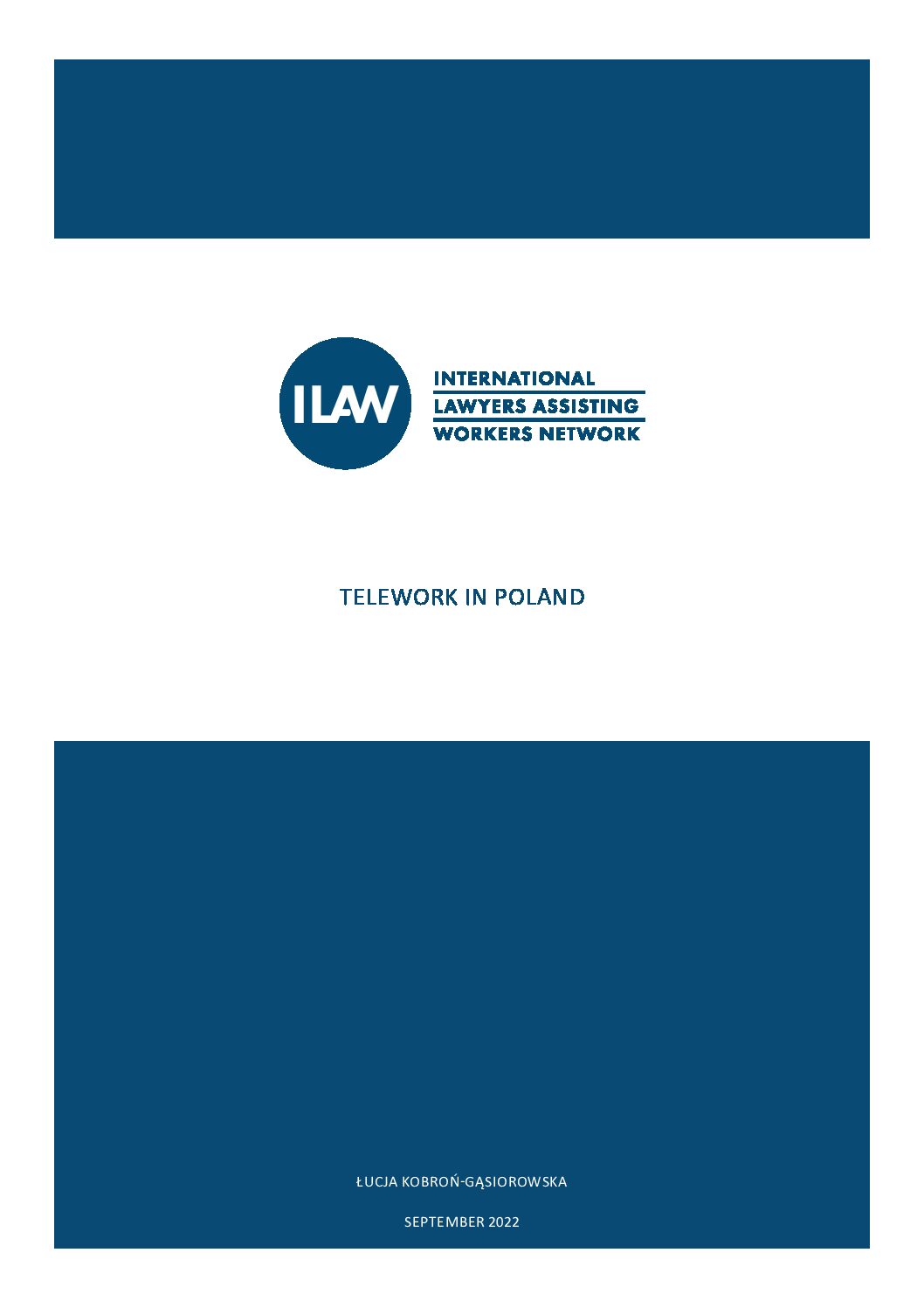
TELEWORK IN POLAND
The ILAW Network has undertaken a research series on telework in Europe and Central Asia. National reports examining the regulation of telework in Moldova, Poland, and Ukraine examine the impact of telework on a range of worker rights issues, including work hours and...
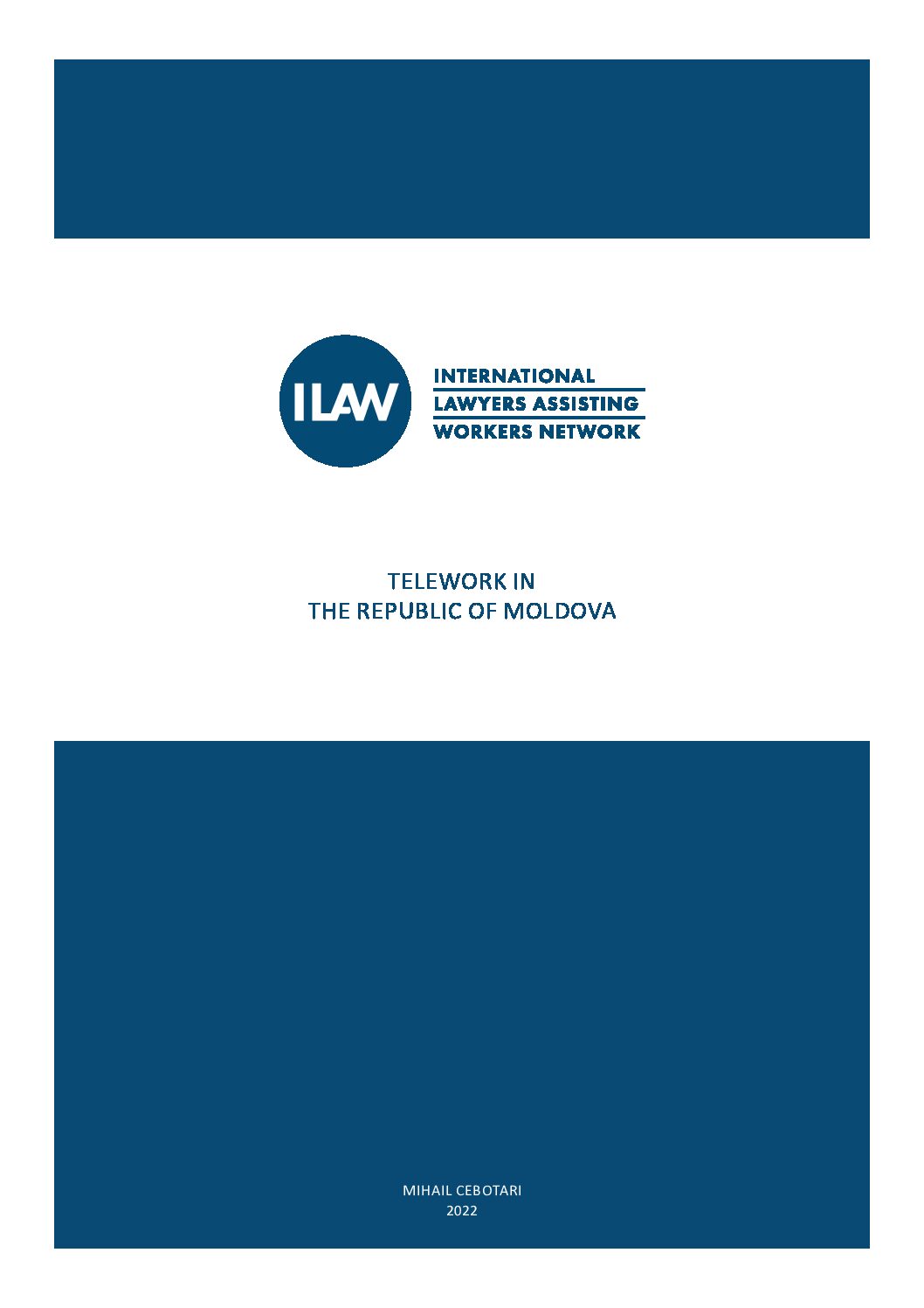
TELEWORK IN THE REPUBLIC OF MOLDOVA
The ILAW Network has undertaken a research series on telework in Europe and Central Asia. National reports examining the regulation of telework in Moldova, Poland, and Ukraine examine the impact of telework on a range of worker rights issues, including work hours and...
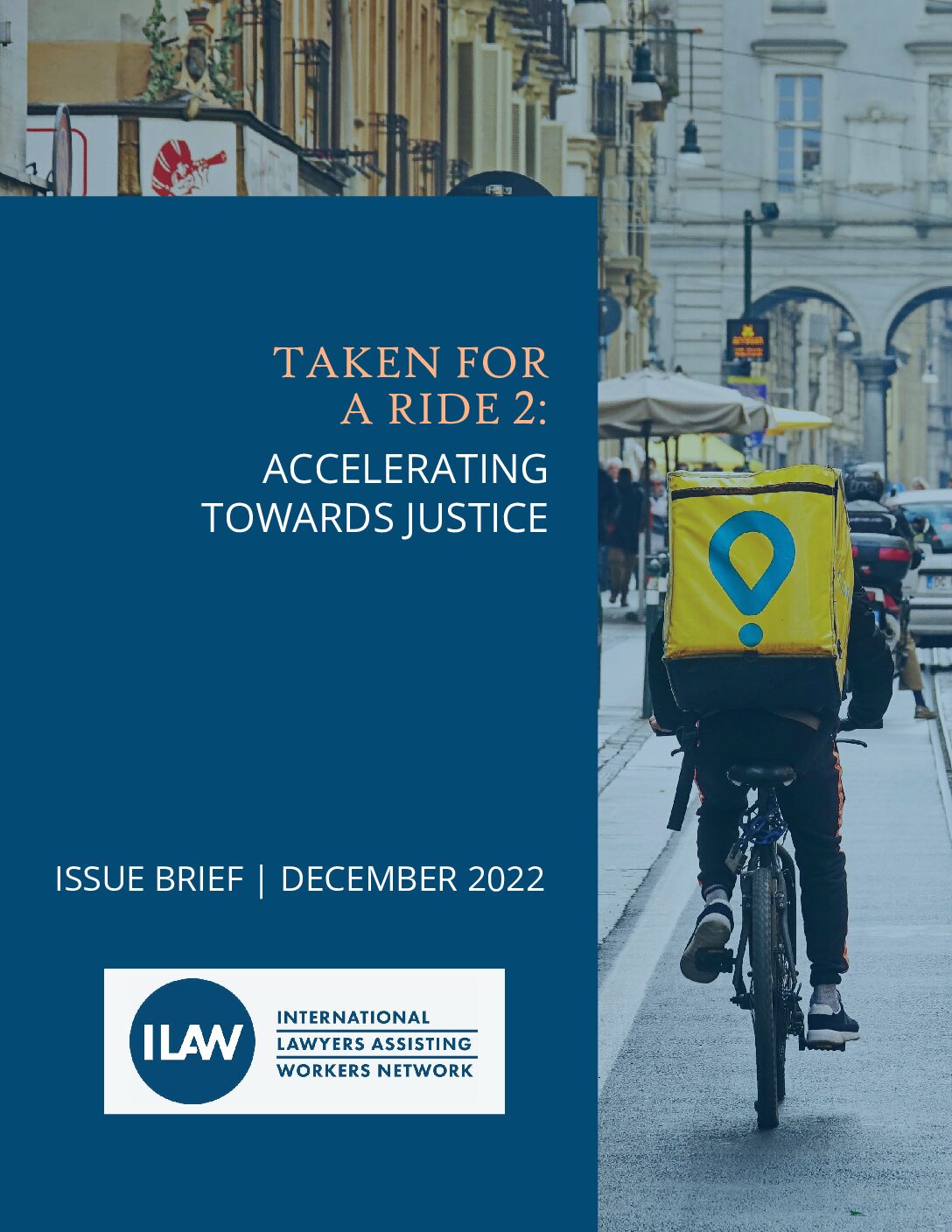
Taken for a Ride 2: Accelerating Towards Justice
This report is an update to the original Taken for a Ride Issue Brief, released in March of 2021. Download it in English or Spanish.

